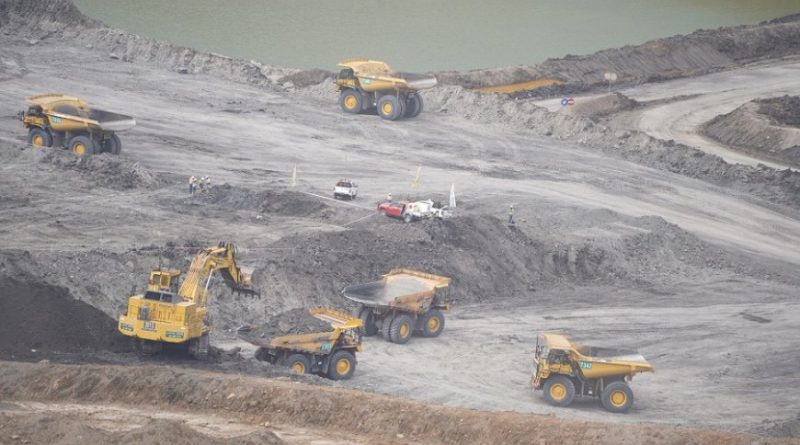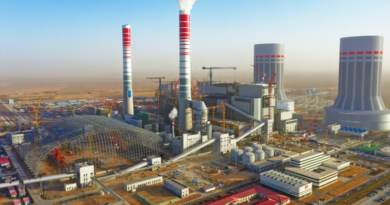White Gold Rising: How Southern Africa Can Turn Lithium into Lasting Prosperity
By Chiyedzo Josiah Dimbo – Ambassador of Hope, The Observer Zimbabwe
As the world races toward a greener future, one mineral has quietly become the new symbol of power and promise: lithium. Often called “white gold,” lithium is at the heart of the electric-vehicle revolution, battery storage systems, and the global push for clean energy. For Southern Africa — a region blessed with vast mineral wealth but still battling structural inequality and unemployment — the question is no longer whether to participate in the lithium value chain, but how to do so sustainably and strategically.
On 27 November 2025, the Institute of Energy and Technology Development (IETD), a Botswana-based innovation hub, will convene a regional virtual seminar titled “Exploring Lithium Opportunities for Botswana and SADC – Learning from Zimbabwe’s Experience.” The 2½-hour discussion aims to create an honest, forward-looking dialogue on how Southern Africa can transform its natural resources into real industrial capacity, jobs, and inclusive growth.
“We are not simply talking about mining more,” says an IETD statement announcing the event. “We are talking about building new industries, new skills, and new regional partnerships anchored on sustainability and shared prosperity.”
Zimbabwe’s Cautionary Example — and its Promise
In the last five years, Zimbabwe has emerged as one of Africa’s most watched lithium producers. From Goromonzi to Bikita, new projects have drawn global attention and significant foreign investment. Yet the experience has been a double-edged sword: while production and exports have surged, critics warn that much of the value still leaves the country in the form of raw ore.
Zimbabwe’s experience illustrates a vital truth: mineral wealth alone does not guarantee national wealth. The real opportunity lies in value addition — refining lithium into battery-grade materials, manufacturing components locally, and ensuring communities benefit from the industry’s growth.
That is precisely the lesson the IETD wants the wider SADC region to learn. Botswana, Namibia, Zambia, and the DRC all hold lithium or related critical minerals. With a coordinated regional strategy, these nations could collectively power Africa’s participation in the global energy transition.
A Regional Vision for a Green Future
The IETD, though young, represents a growing wave of African innovation platforms blending technology, sustainability, and entrepreneurship. Beyond lithium, the institute works on renewable energy, circular economy practices, industrial hemp, sustainable construction, e-waste management, and green technology.
Its leadership believes that collaboration — not competition — is key. Instead of each country trying to build isolated value chains, a regional approach could allow shared infrastructure, knowledge exchange, and market access.
Such cooperation would echo the African Continental Free Trade Area (AfCFTA) vision of integrating markets to boost intra-African trade. For lithium and the broader battery economy, that could mean one country refining the mineral, another producing cathodes or anodes, and yet another assembling battery packs or electric vehicles — all within Africa.
Challenges Ahead
Of course, ambition must meet realism. The region faces challenges: limited capital, inadequate power and transport infrastructure, policy uncertainty, and skill gaps in advanced metallurgy and chemistry. Moreover, the environmental risks of lithium mining — particularly water usage and waste management — must be handled responsibly if the transition to clean energy is to remain truly green.
The upcoming IETD seminar intends to address these issues head-on. It promises to gather voices from government, private sector, academia, and civil society to map a balanced, sustainable approach. Participants are encouraged to register through the Institute’s platforms to ensure a diverse exchange of ideas.
Hope in Collaboration
Countless initiatives rise and fall on this continent — some burdened by bureaucracy, others by corruption, or lack of unity. Yet, every generation brings new dreamers and doers determined to change Africa’s story from extraction to innovation.
Lithium, in all its brilliance, gives us that chance once more. If managed wisely, it can light up our homes, power our industries, and inspire our youth to believe that Africa’s wealth can finally serve African development.
The IETD’s virtual seminar is not just another conference; it is a call to action — a reminder that the future is electric, green, and African.




